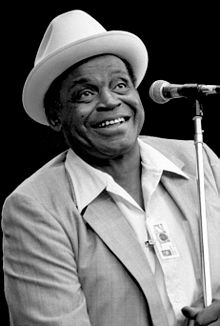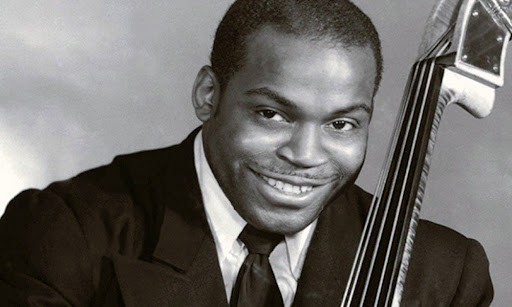Willie Dixon was more than just a blues musician; he was a pivotal figure in the shaping of modern blues and rock music. His songwriting prowess and profound influence are evident in the timeless tracks he created, many of which became hits for other artists. Here’s a look at ten of Willie Dixon’s best songs that have left an indelible mark on music history:
1. Hoochie Coochie Man
- Year: 1954
- Recorded By: Muddy Waters
- Overview: One of Dixon’s most famous compositions, “Hoochie Coochie Man” became a definitive Chicago blues anthem. With its distinctive stop-time riff and boastful lyrics, the song celebrates the archetype of the blues hero. Muddy Waters’ powerful delivery helped immortalize this track, making it a staple in the blues repertoire.
2. Spoonful
- Year: 1960
- Recorded By: Howlin’ Wolf
- Overview: This blues standard captures the essence of desire and need with its hypnotic riff and raw emotion. Howlin’ Wolf’s gravelly voice and Dixon’s evocative lyrics make “Spoonful” a song that’s been covered extensively by rock and blues artists alike, including Cream and Etta James.
3. I Can’t Quit You Baby
- Year: 1956
- Recorded By: Otis Rush
- Overview: A slow, passionate blues number, “I Can’t Quit You Baby” showcases Dixon’s ability to convey deep emotional turmoil. Otis Rush’s expressive guitar and vocals brought the song to life, and it later gained widespread recognition through Led Zeppelin’s cover.
4. Little Red Rooster
- Year: 1961
- Recorded By: Howlin’ Wolf
- Overview: A classic that blends blues with farmyard imagery, “Little Red Rooster” became a hit for both Howlin’ Wolf and The Rolling Stones. The song’s laid-back groove and suggestive lyrics have made it a beloved standard in both blues and rock.
5. Back Door Man
- Year: 1960
- Recorded By: Howlin’ Wolf
- Overview: This gritty song about illicit love affairs highlights Dixon’s knack for storytelling through the blues. Howlin’ Wolf’s robust performance and the song’s raw energy made it a standout, later covered by The Doors, adding to its legacy.
6. I Just Want to Make Love to You
- Year: 1954
- Recorded By: Muddy Waters
- Overview: This steamy, bluesy declaration of desire is one of Dixon’s most enduring songs. Muddy Waters’ original recording is a classic, while Etta James’ soulful rendition brought a new dimension to the song, highlighting its versatility.
7. Wang Dang Doodle
- Year: 1960
- Recorded By: Howlin’ Wolf
- Overview: “Wang Dang Doodle” is a party anthem that paints a vivid picture of a wild, joyous gathering. Howlin’ Wolf’s powerful performance and Dixon’s vibrant lyrics made it a hit, later popularized further by Koko Taylor’s electrifying version.
8. You Shook Me
- Year: 1962
- Recorded By: Muddy Waters
- Overview: A slow blues number with a prominent stop-time section, “You Shook Me” became a classic through Muddy Waters’ rendition. The song’s haunting melody and evocative lyrics found a new audience when Led Zeppelin covered it, showcasing Dixon’s influence on rock music.
9. My Babe
- Year: 1955
- Recorded By: Little Walter
- Overview: Built on the gospel song “This Train,” “My Babe” became a hit for Little Walter. Dixon’s clever adaptation of the spiritual message into a blues context demonstrated his skill in transforming traditional music into contemporary blues.
10. I Ain’t Superstitious
- Year: 1961
- Recorded By: Howlin’ Wolf
- Overview: This song reflects Dixon’s ability to infuse humor and a laid-back vibe into the blues. Howlin’ Wolf’s rendition captures the playful spirit of the lyrics, and Jeff Beck’s later cover added a rock edge to this timeless tune.
Impact and Legacy
Willie Dixon’s contributions to blues and rock are immeasurable. His songs have been covered and adapted by countless artists, bridging the gap between traditional blues and modern rock. Each of these ten tracks not only showcases his talent for songwriting but also his deep understanding of the human condition, making his music resonate across generations.


No responses yet